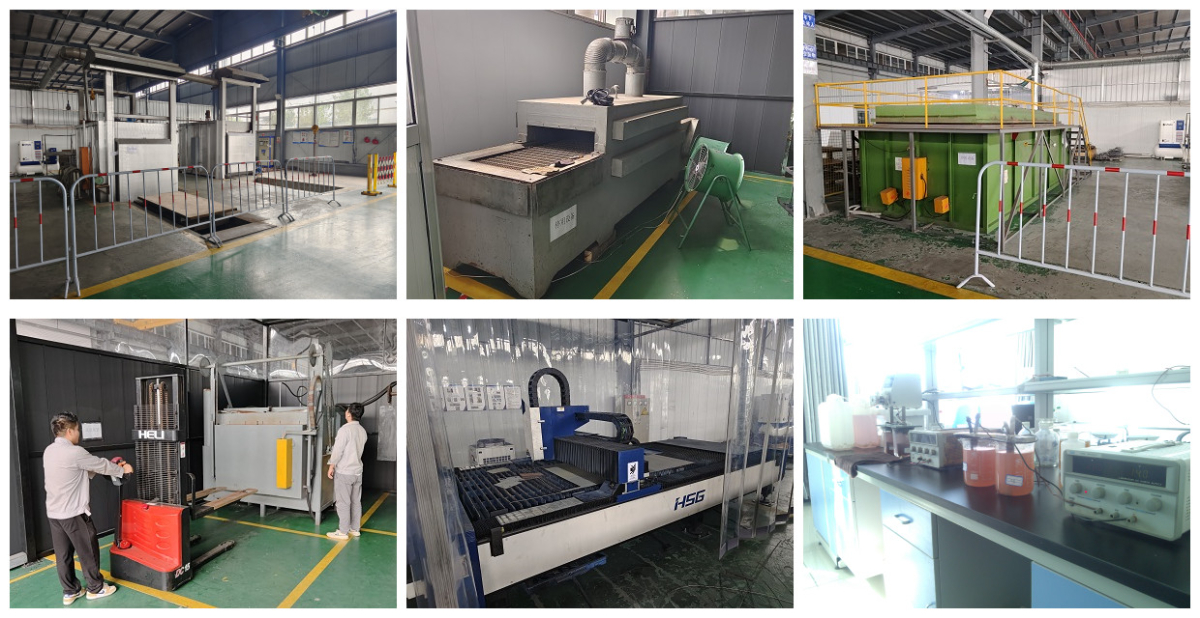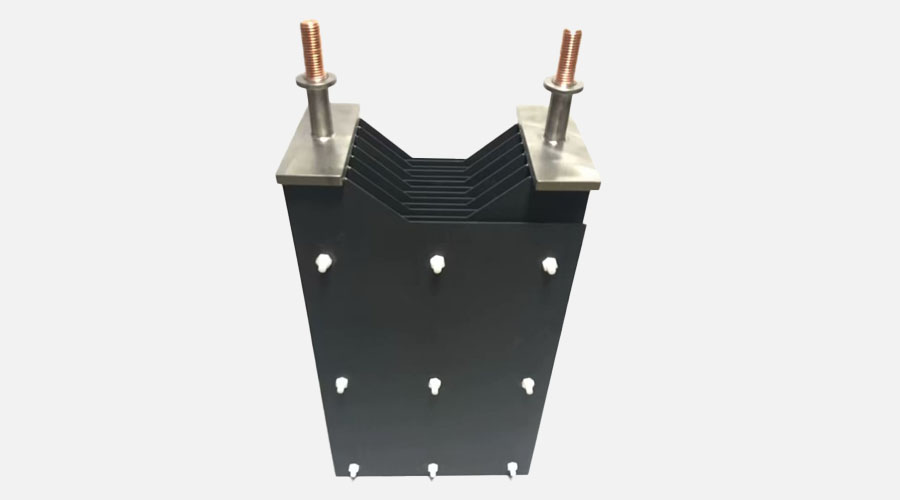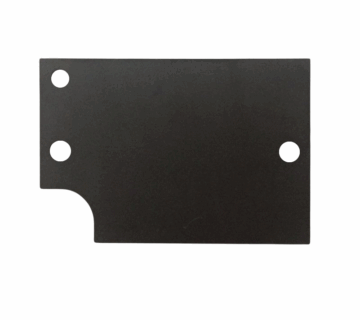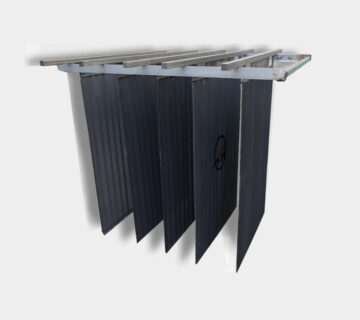Titanium anode mainly treat sewageWorking Principle
Titanium anode mainly treat sewage by means of electrocatalytic oxidation. Under the action of an electric field, the active coating on the surface of titanium anode can generate strongly oxidizing substances such as hydroxyl radicals. These strongly oxidizing substances can undergo oxidation reactions with pollutants such as organic matter, ammonia nitrogen, and heavy metal ions in sewage, decomposing them into harmless substances such as carbon dioxide, water, and inorganic ions.
In the field of wastewater treatment, the removal rate of COD is one of the important indicators to measure the effect of wastewater treatment. Due to the many types of wastewater and their different properties, there are various methods for treating wastewater. Chemical methods for treating wastewater need to add chemical substances such as oxidants and flocculants, and the equipment has a large volume, occupies a large area, and the subsequent treatment is complex, so the cost is high; biological treatment technology can only treat biodegradable substances in wastewater, so it can only remove COD and chroma in wastewater to a limited extent; while electrochemical methods for treating wastewater generally do not need to add chemical substances, the equipment has a small volume, occupies less area, is easy to operate flexibly, has less sludge, and the post-treatment is extremely simple. It is usually called an environmentally friendly and clean treatment method. Make the application of electrochemical methods in the field of sewage treatment more effective and the application scope wider.
Electrooxidation method uses the high potential of the anode to degrade toxic compounds in the solution. Electrooxidation can be divided into direct oxidation and indirect oxidation. CN- in electroplating industrial wastewater can be directly oxidized by titanium electrodes. At the same time, direct oxidation also has the functions of desulfurization and sterilization. Indirect oxidation is that in the reaction process of titanium anode, chemically active substances with strong oxidizing properties are preferentially generated, and then these substances are used to oxidize and decompose refractory substances. Ag2+, Co3+ and Fe3+ can all be used as oxidation intermediates of organic substances. Indirect oxidation has been verified to be effective in the oxidation process of benzene, phenol, oil and chloride.
Advantages
| Feature | Benefit | Technical Data |
|---|---|---|
| Corrosion Resistance | Stable in pH 0–14 and high TDS (up to 100,000 mg/L). | Coating degradation rate <0.1 μm/year in 1 M H₂SO₄ . |
| Low Overpotential | Reduces energy consumption for oxidation reactions. | Ir-Ta anodes exhibit OER overpotential of ~250 mV at 100 mA/cm² . |
| Longevity | Service life of 5–10 years in most wastewater conditions. | BDD anodes last >8 years in highly corrosive environments . |
| Scalability | Suitable for small-scale (e.g., municipal) to large industrial plants. | Current densities up to 1,000 A/m² in compact electrochemical reactors. |
Why choose us?
1. Superior Material Quality & Durability
Corrosion Resistance: Titanium’s inherent resistance to acids, alkalis, and chloride-rich environments ensures long service life in demanding applications like cobalt electrowinning or wastewater treatment.
High Strength & Stability: Titanium maintains structural integrity under high currents and temperatures, reducing the risk of deformation or degradation.
Customized Coatings: We apply advanced oxide coatings (e.g., ruthenium, iridium, platinum group metals) tailored to your process, enhancing conductivity, catalytic activity, and longevity.
2. Technical Expertise & Custom Solutions
Tailored Design: We analyze your process parameters (current density, electrolyte composition, temperature) to design anodes that maximize efficiency.
R&D-Driven Innovation: Our team stays ahead of industry trends, integrating the latest coating technologies (e.g., mixed metal oxides, dimensionally stable anodes – DSAs) for performance gains.
Testing & Validation: Pre-production prototypes undergo rigorous testing to ensure compliance with your specifications.
3. Cost-Effectiveness & Sustainability
Lower Total Cost of Ownership (TCO):
Longevity reduces replacement frequency compared to traditional anodes (e.g., lead, graphite).
Energy-efficient designs cut electricity costs in large-scale operations.
Eco-Friendly: Titanium is recyclable, and our coatings minimize metal leaching, aligning with environmental regulations.
4. Reliable Service & Support
Global Supply Chain: Timely delivery through the streamlined manufacturing and logistics network.
Technical Support: Post-installation guidance, troubleshooting, and maintenance recommendations.
Compliance Assurance: Anodes meet international standards (e.g., ISO, SGS) and can be certified for specific industries (e.g., mining, water treatment).

Company Profile
Qixin titanium Co.Ltd, is a leading manufacturer specializing in coated titanium anode. With an extensive historyand a wealth of expertise, we have been dedicated to providing high-quality products and solutions to variousindustries for many years.Our company was established 2006, and since then, we have accumulated 18 years of valuable manufacturingexperience. This experience has enabled us to master the art and science of producing top-notch coated titaniumanodes that meet the most stringent quality standards.We take pride in our state-of-the -art manufacturing facilities and a team of highly skilled professionals. Ourengineers and technicians are experts in the field, constantly researching and innovating to improve our productsand processes.

production
1. Substrate treatment: it needs to be treated by roughing, cleaning and removing oil, which can increase the compactness of catalytic.
2. Brushing coating:After substrate treatment, it will be proceeded brush coated. The main coated content is platinum group metal, which is a kind of mixed solution.Then, heat treatment will be going on after drying.The whole procedure need to be repeated many times. This method is better to form thin oxide catalytic that is lamellar adhere to substrate surface.

Package and shipping
(The picture is for your reference) Customized Package Is Available.
Step1: Wrapped by water proof paper
Step2: Bubble papaer
Step3: Plywood case outside to avoid any damage during the shipment.
Or packed as customer’s requirement.
Shipping :by air,by sea,Ems,Fedex or Dhl.
Delivery:15 working days after payment.

FAQ
1. How to ensure the product quality?
All products make 100% inspection before shipment also we can provide the MTC Material Test Certification.
2. Can you print our Logo on the products?
Sure, and we welcome the customerized products.
3.What about the payment terms?.
T/T, L/C, Paypal, Western Union, Escrew and MoneyGram etc are all accepted.
4.What is the necessary information for an inquiry?
Product name, specification, material grade and quantity.
5.Can we get a free sample before cargo production?
Sure.








